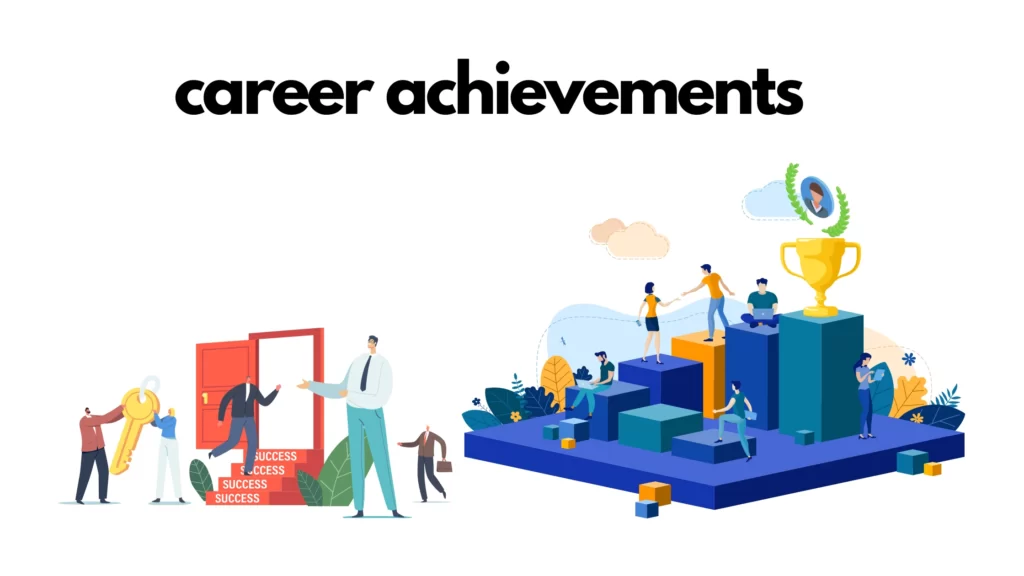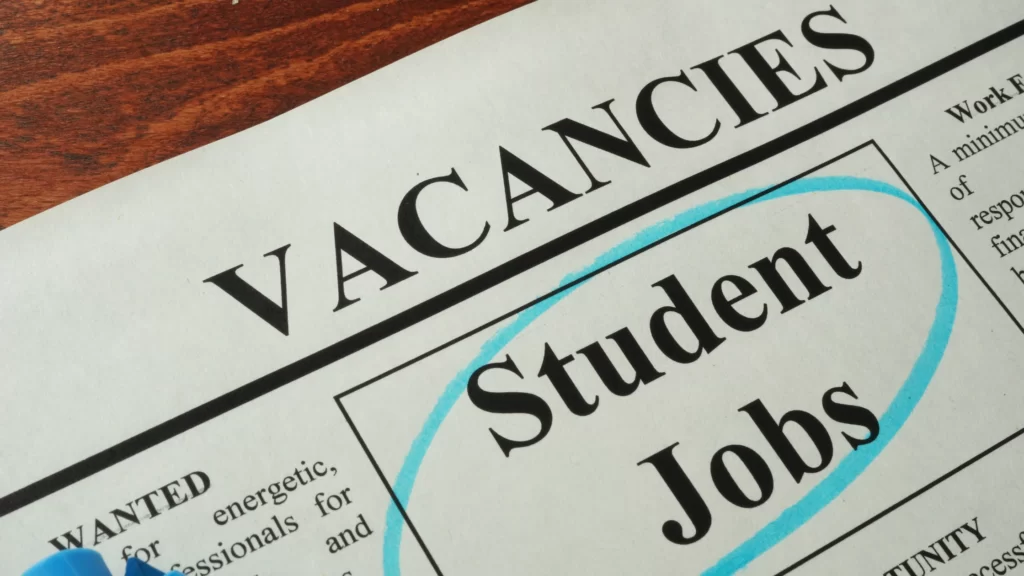Choosing which career achievements to include in our CV is also an issue we need to consider and choose carefully.
Write outstanding achievements in your CV
If you have little experience
For young people who have no experience in a formal job, or have no experience in many different businesses and positions. In my personal opinion, the achievements should be included in the CV without thinking too much. One of the reasons is that your experience may not be rich when working for a long time at a job, or not working for a long time.
Therefore, your experience will not be too rich. Putting all your achievements on your CV shows that even if you have a part-time job or haven’t accumulated rich experience, you have put your best into your previous job and reaped the rewards of certain achievements. It shows employers how serious and hard-working you are in performing previous jobs.
If you have a lot of experience
Candidates who have a lot of experience “change jobs” in many different businesses or have worked through many job positions. Selection of achievements to include in the CV should be done carefully, avoiding the situation of being too rambling and not creating a highlight.
Is that achievement the best
The first thing to consider about achievement is whether it was your brightest point in an activity. It is possible that during your work, you have achieved many achievements in the same work or work category. Record your best achievements. You don’t need to list what you’ve accomplished each year, let others know what you’ve done best. That is the highlight of your CV.
A CV with too many duplicate achievements, differing only in the number of results achieved will be more like an annual performance report than a professional resume. Besides, the amount of data included in the CV should not be too long and duplicated. All information should be as short, clear, and concise as possible.
Related to the job you are applying for
Another point you need to keep in mind when you have a lot of achievements and consider whether to include them in your CV is “is that achievement-related or affected in any way to the job you want to apply for? “.
If you are applying for a higher position in the same industry you worked in before, it is clear that your previous company’s achievements should be fully included as it shows the recruiter that you have done well in your previous job. How to come, and how to affirm your expertise for the job you are interested in applying for.
Or maybe your new job isn’t quite what you used to do before, but your old outstanding achievements also demonstrate the skills required for the new position. So why don’t you include it?
For example, you have a remarkable track record in sales and want to jump into a new field of being a Headhunter. You can completely put your achievements in the past business because it shows the recruiter how good you are at locating customers and negotiating.
Or if you are an accountant and want to move into a new field of financial analysis. The accounting knowledge will be the foundation for you to develop more broadly in the work of financial analysis when you need to have a good understanding of accounting, financial statements, and corporate financial market trends.
Expand on whether previous performance applies to the job you’re applying for. There are quite a lot of views that I get when talking with other recruiters. It is hard finding a common voice or general view to make specific instructions for you, other than the relationship between your performance and the job you’re applying for.
However, what is called relevancy in recruitment is an issue that I can help you clarify here.
To make it easier for you to imagine, I divide their schooling into several stages. The first stage is from 6 to 18 years old, temporarily called universal education. Stage two is the first year when you are a student, so-called general knowledge. The next stage is from second-year students until you graduate – the period of learning specialized knowledge.
And the final stage, from the time you no longer sit in school until you no longer exist in this world – is the self-study stage. Over time, the degree of specialization and differentiation of the stages will differ more and more.
If during the universal education stage, you are trained according to a compulsory and standardized curriculum, then in the second stage onwards, it depends on your choice.
Especially the last stage, from leaving school. You can study whatever you want and are no longer bound by exams, graduations, degrees, etc. Because of the deepening specialization in learning, your choice of employment, the achievement will be increasingly narrow in a certain range.
It will be difficult when you are both an artist, a programmer, and an electronic engineer. Everyone’s time is the same, there are 24 hours in a day, so choosing a field to pursue will greatly affect your future.
When you have chosen and pursued a certain major, you will gradually accumulate the skills and job knowledge for that major. One of the concepts I heard when you enrolled in the University was that “studying an engineer can make an economy, but studying economics can’t be an engineer”.
This statement, in my opinion, is neither right nor wrong but depends on how well each person is capable of self-study. The time during your university and college studies is too short compared to the rest of your life in society.
However, when you have excelled and have a significant work record at a certain job, you will often choose the next job following a similar path to the previous job. If you also have such an option, then the “achievement” you already have will be compatible with the new job you have just applied for.
This path also leads you to find a new job in the “safe zone” and with less risky potential. At this point, previous work experience plays an important role in how employers see your qualifications through your CV and decide to contact you to invite you to participate in an interview.
Sometimes you can get a little out of your comfort zone with jobs that aren’t exactly the same, but still, have something to do with the old work background. No problem. The achievements at the old job can completely be your plus point.
One problem, however, is that if what you’ve been doing and feel no longer appealing, you absolutely want to get out of your comfort zone and do something completely new and not build on the old platforms.
Consider it carefully and also revise your CV with caution. Double-check your previous work accomplishments that are really necessary to include. You may be a good artist and want to break into the field of interior design. They all have similarities in terms of knowledge related to color, layout, decorative design, etc. But it is a big problem for an artist to switch to IT programming.
Try double-checking to see if the job you’re applying for has anything to do with your previous work performance or connection. If not, boldly remove it from your CV.
I would like to emphasize again, that “employers look for the best suitable candidate for a job, not the best performance candidate”. You may be a guru in one field, but it’s unlikely that you’ll fully adapt to a new role, where your strengths are completely unrelated to the job requirements.





